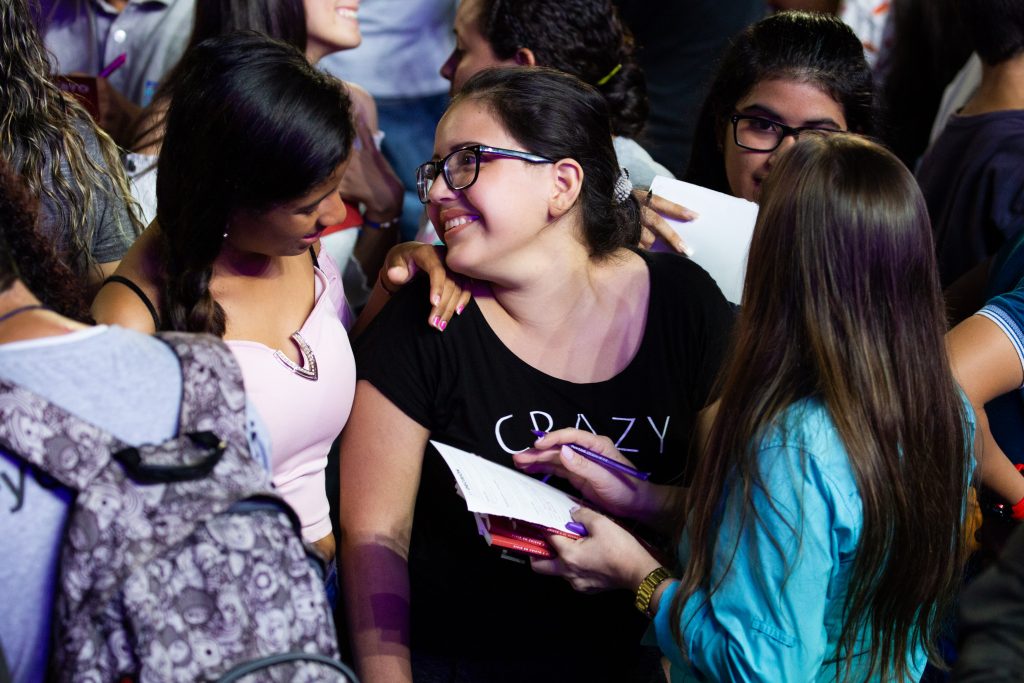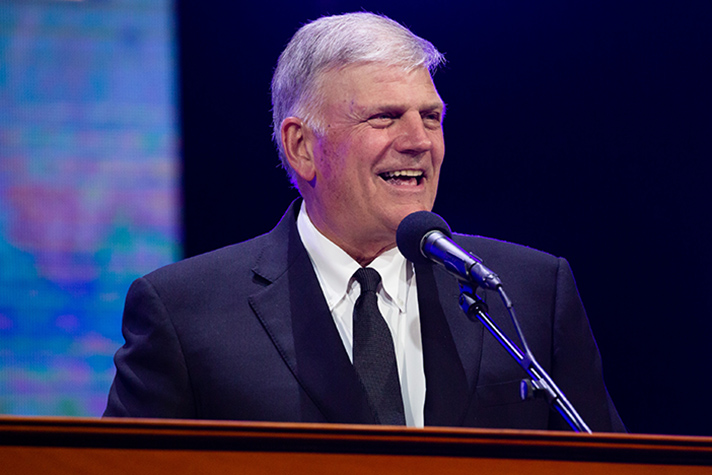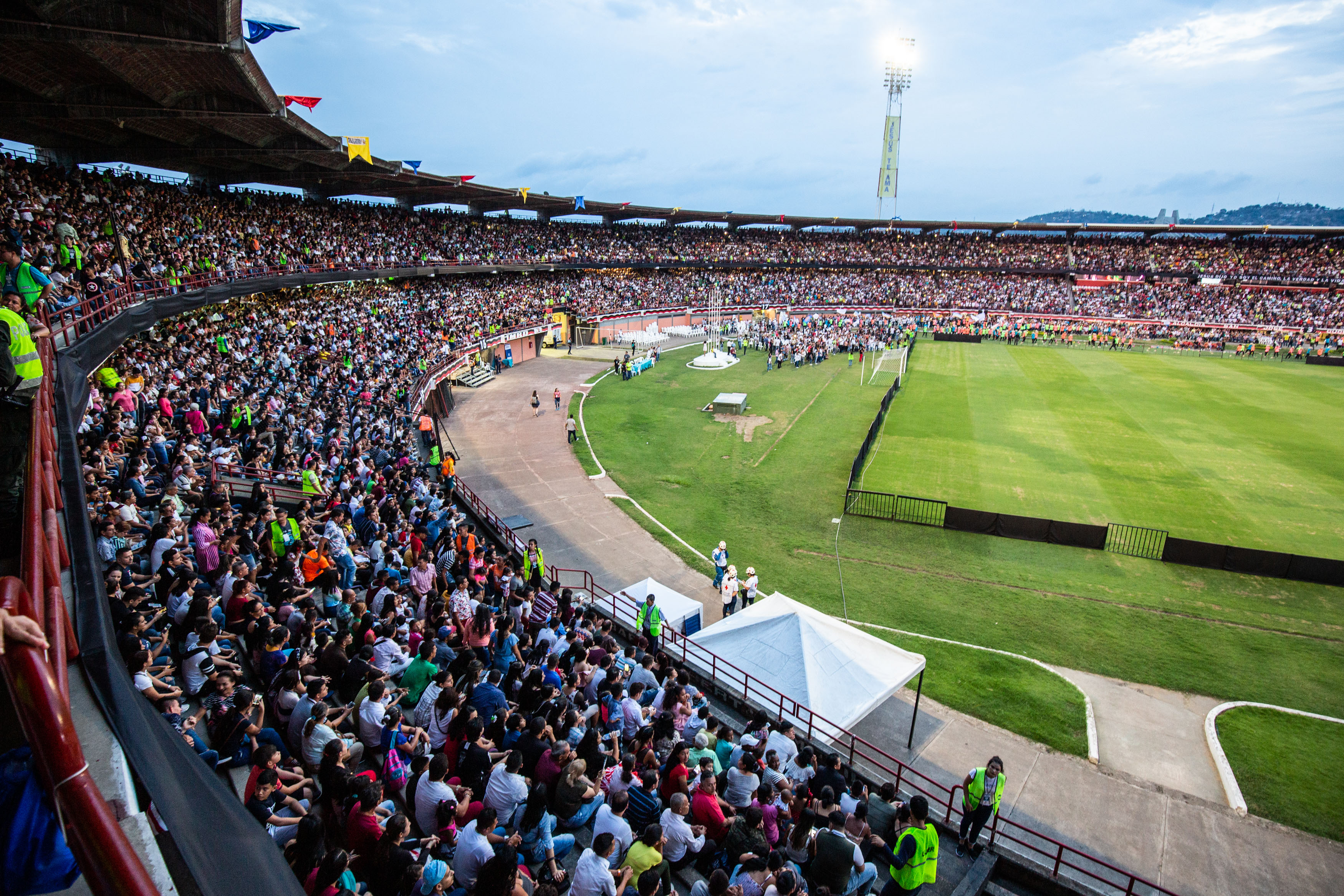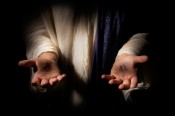
As darkness fell over General Santander Stadium in the border city of Cúcuta, Colombia, on Good Friday, the crowd of 40,000-plus Colombians and Venezuelans was anything but quiet.
Dancers wearing bright, neon colored shirts waved flags and jumped around, while the audience flung their hands into the air and raised their voices, praising God.
It couldn’t be more different than the somber, dark day—what we call Good Friday—when God’s Son, Jesus, died on the cross 2,000 years ago and all hope seemed lost.
But as Franklin Graham shared at the Festival de Esperanza (or Festival of Hope), it’s considered “good” because Jesus didn’t stay in the grave. He rose to life three days later.
Between the circular soccer stadium at capacity and the Holy Spirit powerfully at work, the moment seemed impossible to capture. Nearby, a basketball coliseum served as an overflow space, bringing the total attendees to an estimated 52,000 with another 2,300 watching online.
Despite being packed in, several Venezuelans shared they were able to pause and breathe during the event’s few hours. Often their minds are consumed with thoughts of economic hardship.
Eighteen-year-old Nmannuel said he felt “relief” throughout the night, especially as popular singer Barak led worship. It reminded him of the years he used to play Barak’s songs on a keyboard in a Venezuelan church—before he strayed from God.
Nowadays, he uses his musical talent when he’s short on money by playing his guitar at traffic lights in Cúcuta. Having left Venezuela just last month, many days have been very stressful, but “being [at the Festival] was a blessing for my life,” he said.
Choosing to fix his eyes on what is unseen, he went forward with thousands of others to make a decision for Christ after Franklin Graham shared about how everyone’s soul is precious in God’s sight.

Pastor Mauricio said several of his church members felt relief, too, the night before at a dedication service for the Festival.
“It’s like I came into another world … the weight was taken off,” they told him.
His church—which sits on the edge of Cúcuta and is 100 percent Venezuelan—took three busloads to the Festival on Friday evening. Although they have many other needs in their lives at the moment, Mauricio noted their biggest need is spiritual.
“They left their jobs and everything,” he said. “They’d rather stay on the street here than sleep in a house there where they have no food and no safety.”
Lined with trash and an abandoned suitcase here or there, the chaotic streets along the border hold dozens of vendors selling medicine, candies, vegetables and electronics looking to earn enough pesos to survive.
In the midst of such a dire situation, Mauricio’s church and others have been gathering together in prayer, hoping that this weekend’s Festival would offer something more for those who have nothing.
“We’re already seeing a lot of effects of the Festival in unity in the churches coming together and working together, and the desire to continue to work together after the event,” Mauricio said.
“The city has noticed it, and the people in the city are noticing we’re speaking one language, Jesus. We’re showing one love, the love of Christ. … We expect the city to not be the same after this.”
Staying Behind to Love Ahead
Across the border, others have chosen to stay in their homeland in the midst of the Venezuela crisis.
Pastor César has been praying for months ahead of the two-night event.
Over the past few years, César has watched much of his congregation flee at the height of hardship, which has touched his family as well. Because of the pressing situation, five of his six children have left the country.
Even so, he won’t leave.
His reason?
“I firmly believe the reason I am in Venezuela is because God doesn’t want me to go,” César said. “As a leader in my country, it would be terrible for me to leave because it would set a very bad precedent in relation to what it means to stay in obedience to God.”
Consequently, he’s staying to share the hope of a risen Savior with those who remain in the area.
In his leadership role, he’s often interviewed and is unafraid to share his full name.
“To the degree that we back down to fear, the restrictions in our country grow,” César said. “The only way for the world to understand the situation we are facing is for individuals to openly share their story and their names.”
Do you have faith in God? Start a relationship with Him today.



